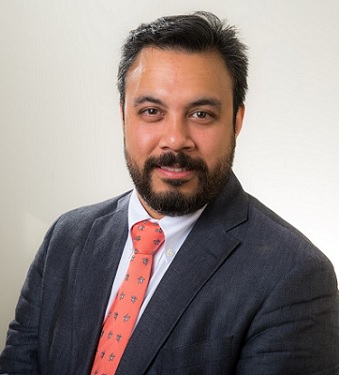Neil Sarkar is one of the newest members of RI Bio’s board of directors. Sarkar, who is CEO and president of the Rhode Island Quality Institute, joined the board, along with Jaimy Mauricio of Rubius Therapeutics Inc., in March.
Sarkar, also an associate professor of medical science and associate professor of health services, policy and practice at Brown University, discusses his new role at RI BIO, his perspective on Rhode Island’s life sciences industry and the expansion of Rhode Island Quality Institute’s CurrentCare service.
PBN: What drew you toward joining RI Bio’s board of directors?
SARKAR: This is such an exciting time for the life sciences sector in Rhode Island. I am honored to have the opportunity to bring a viewpoint from Rhode Island’s digital health ecosystem as the leader of the state’s designated Regional Health Information Organization. Joining other life sciences leaders on the board, I look forward to supporting RI Bio’s inertia to provide the culture and framework to advance life sciences progress in Rhode Island.
PBN: Is there a particular area of Rhode Island’s life sciences industry that you feel needs more resources or growth?
SARKAR: The entire life sciences industry in Rhode Island needs increased investment to support sustainable growth. If forced to pick an area, I would suggest the area of translational science – i.e., focused investments in bridging the “bench-to-bedside” or “laboratory-to-clinic” gulf would immediately catalyze impactful innovations that improve the health of Rhode Islanders.
PBN: You are deeply involved in public health and health care quality and value in Rhode Island. How has RI Bio intersected with the work you are doing?
SARKAR: Developing and evaluating new treatments requires population level understanding of how we are improving the health and well-being of a community. Fundamental to achieving that goal is having reliable access to robust and trustworthy health data.
The many facets of RI Bio, from training the next generation of life sciences leaders to building communities to advance the life sciences economy, depend on understanding the health care impact. The Rhode Island Quality Institute is uniquely positioned to advance approaches to identify opportunities for advancement, as well as benchmarking progress in advancing science to improve lives at a population level.
I view the work and goals of RI Bio and RIQI to be very synergistic, with the common overarching goal to bring the highest-quality science to advance biomedical research and health care in Rhode Island.
PBN: You were the founding director of the Brown Center for Biomedical Informatics before you joined RIQI. What was the focus of your research there?
SARKAR: My formal training is in biomedical informatics and data science, and my focus area of research is the development and evaluation of methodologies to integrate data across multiple spheres of knowledge – termed “heterogenous data integration” for those in the field. This integration can be used to identify new information – or “actionable information” – that supports clinicians and biomedical researchers in their focus to improve patient care.
PBN: What is happening at RIQI right now that you are excited about?
SARKAR: I am most excited about the expansion of our core service, CurrentCare, which serves as the state-designated centralized longitudinal medical record, to be available to all who receive care in Rhode Island. The technical term for CurrentCare is “health information exchange.” CurrentCare was among the nation’s first such statewide HIEs. With the expansion of CurrentCare, there will be equitable access to life-saving health care data regardless of where care is sought in Rhode Island.
Elizabeth Graham is a PBN contributing writer.













